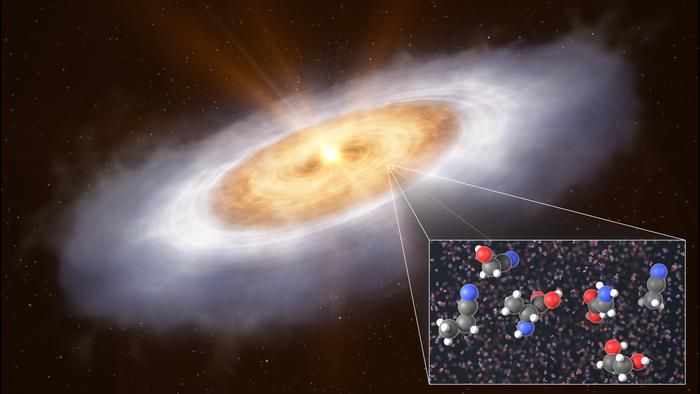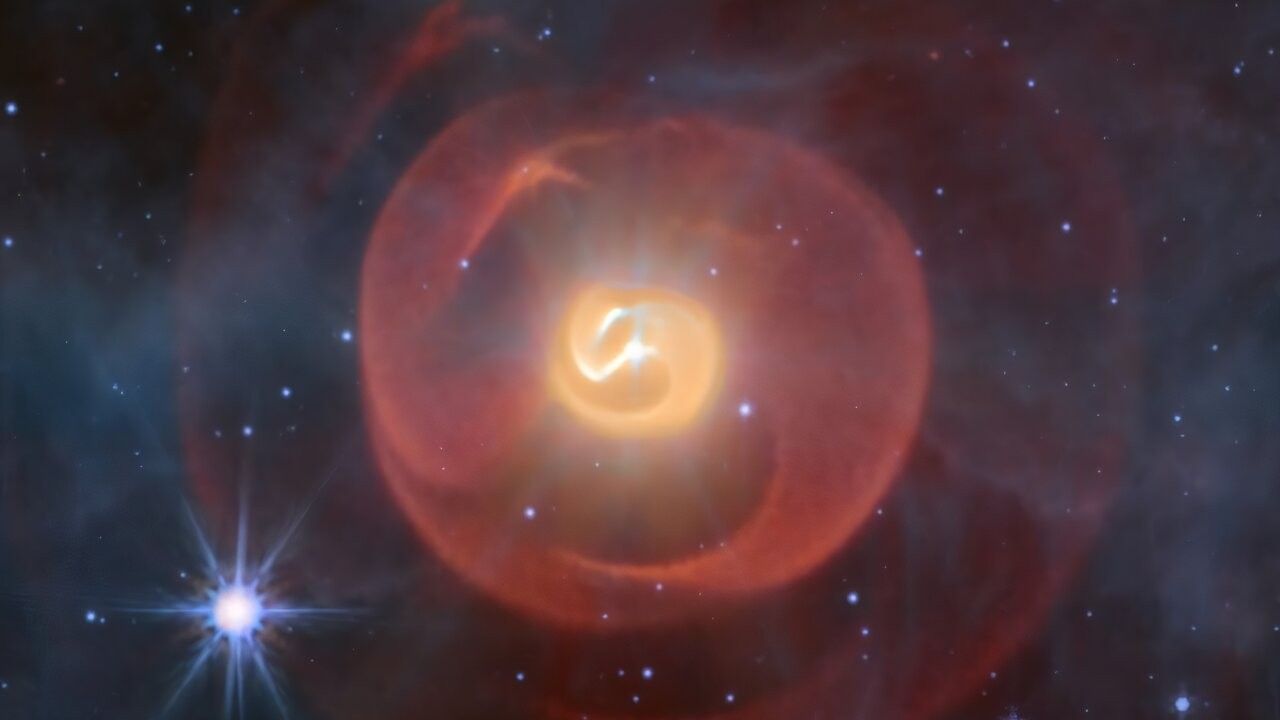Now Reading: Building Blocks of Life Found to Be More Common in Space, Study Reveals
-
01
Building Blocks of Life Found to Be More Common in Space, Study Reveals
Building Blocks of Life Found to Be More Common in Space, Study Reveals

Swift Summary
- Astronomers discovered 17 complex organic molecules, including ethylene glycol adn glycolonitrile, circling teh protostar V883 Orionis in a protoplanetary disk located 1,300 light-years from Earth in the constellation Orion.
- These molecules are chemical precursors to DNA and RNA and suggest life’s building blocks may be more widespread across space than previously assumed.
- The study was conducted using data from the Atacama Large Millimeter/submillimeter Array (ALMA) radio telescopes in Chile and published on july 23 in The Astrophysical Journal Letters.
- Previous assumptions held that violent star formations destroy organic chemistry vital for life, but this finding suggests molecular complexity intensifies during protoplanetary disk stages.
- Study co-author Kamber Schwarz noted this discovery indicates protoplanetary discs inherit complex molecules earlier than thought, fostering their evolution despite stellar outbursts.
- Higher-resolution data is required to confirm these findings and explore further chemical complexities.
Image:
!An artist’s impression showing the planet-forming disk around the star V883 Orions
(Credit: ESO/L. Calçada/T. Müller (MPIA/HdA))
Indian Opinion Analysis
This discovery has implications for India’s scientific community as it highlights opportunities for collaboration in astrobiological research-an emerging field with potential intersections between astronomy, chemistry, and planetary science. If such fundamental building blocks of life are found more frequently throughout space than suspected earlier, India’s active participation through organizations like ISRO could leverage joint studies into prebiotic materials within celestial bodies like asteroids or comets.
The findings also underscore global questions about life’s origins-a topic of interest not only for scientists but also philosophical traditions rooted in countries like india that ponder cosmic interconnectedness deeply within their cultural fabric. As India’s space exploration expands with missions targeting extraterrestrial resources and planetary systems (e.g., Chandrayaan or aditya L1), global discoveries like this might stimulate domestic investments into similar projects exploring life’s precursors outside Earth.
Collaborative ventures anchored by precision astrophysics could enhance India’s innovative footprint internationally while bolstering local scientific infrastructure along wider interdisciplinary lines tied to universal matters of existence itself.
























